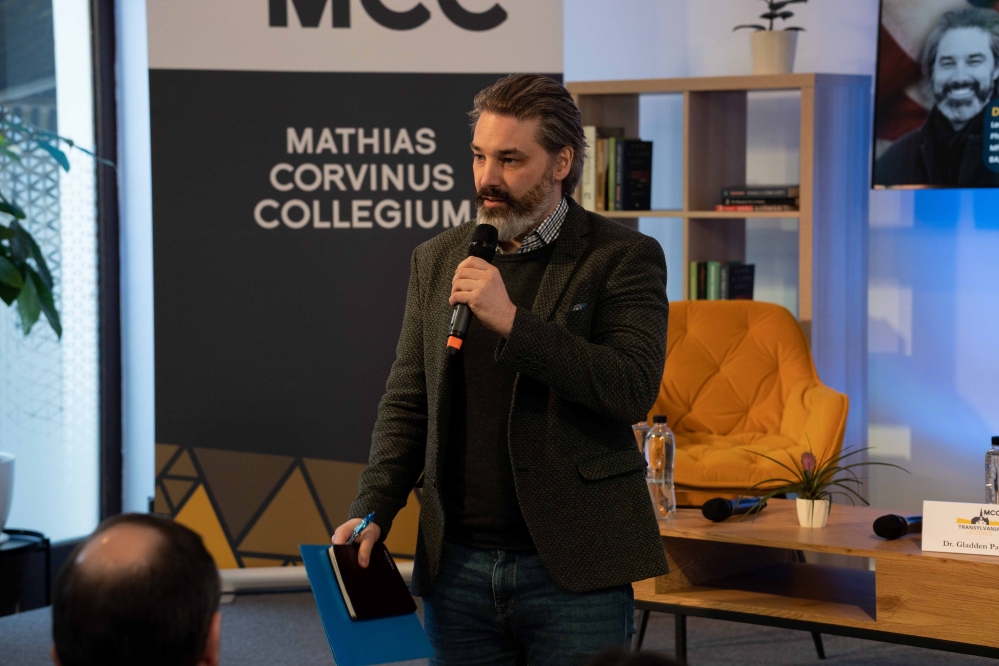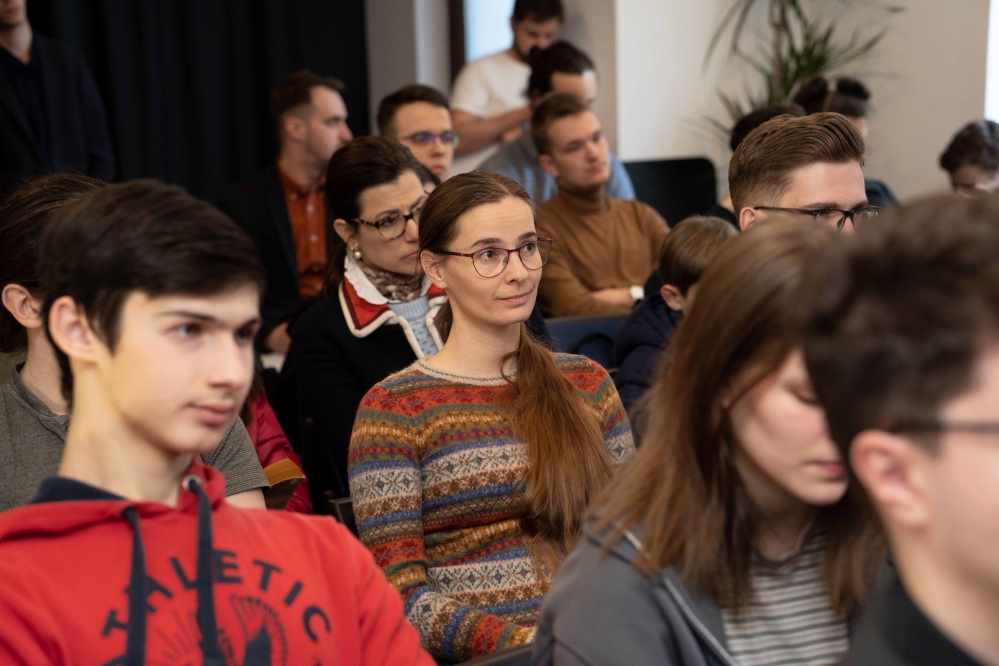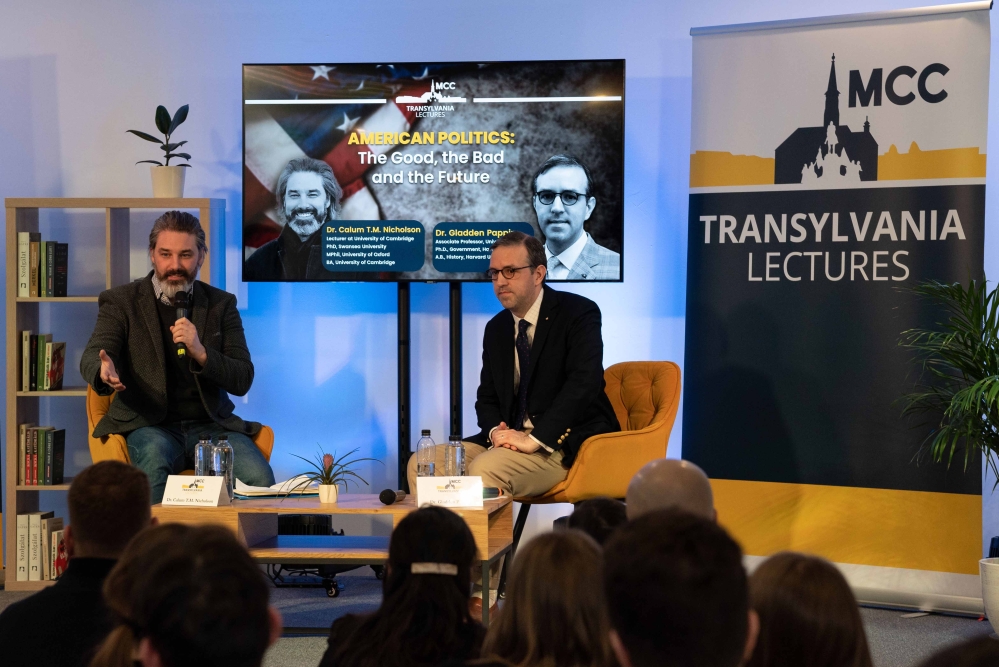Reading time: 4 minutes
Mathias Corvinus Collegium (MCC) continued its Transylvania Lectures series with a popular second lecture. On March 18, Gladden Pappin, Assistant Professor of Political Science at the University of Dallas and MCC guest lecturer, gave a lecture on pressing issues in American politics.
For the monthly Transylvania Lectures, the MCC invites speakers from abroad to share their views on the important and divisive issues of our time. "The public event is mainly aimed at academics and encourages participants to engage in discussion with our guests, who are close observers or even shapers of key public, social and business processes," said Botond Talpas, general director of MCC Transylvania. He said that the organizers are also planning the next Transylvania Lectures to ensure that the widest possible audience can listen to high quality lectures on a wide range of topics.
Gladden Pappin is a visiting senior fellow at the Mathias Corvinus Collegium, on leave from the University of Dallas, where he is an associate professor of politics. He received his bachelor’s degree in history, as well as his master’s and PhD in government, from Harvard University. In 2017 he cofounded American Affairs, now the premier conservative political quarterly in the United States, of which he is deputy editor. Recently he cofounded Postliberal Order, and he is a member of the Sovereign Military Order of Malta. He writes regularly on issues of U.S. and European politics.
Gladden Pappin told us that he has been in Budapest since September as a lecturer of the MCC, and he is trying to get to know Hungarian history and culture. He said that although he prefers to talk about local issues, he cannot avoid American politics as it affects the whole world. The speaker first outlined the evolution of the understanding of equality throughout history. Europeans coming to America put aside their previous social backgrounds, and common goals laid the foundations for a kind of equality. However, equality has been interpreted differently by different people, and over the centuries its enforcement has often become extreme and aggressive. The creation of equality is a noble goal, but people can go too far and pursue it with religious fervor and radicalism, the political scientist explained. As an example, he pointed out that during the Civil War, Northerners were so eager to abolish slavery that they were willing to destroy the entire Southern society. Or, in many cases, the Anglo-Saxon notion that as a morally superior people they should spread the idea of equality in the world, resulted in the oppression of other peoples.
Today, a worldwide cultural colonialism is going on: America will only accept that others are morally right if they behave like it. Even within the United States, there are serious disagreements about this: anyone who disagrees with the new ideals of equality is stigmatized. Liberalism has slowly become a weapon. According to Gladden Pappin, it is now becoming clear to the big Western corporations and to America that they cannot impose liberal democracy on a wide range of countries and shape the world in their own image. It is a very fragile situation, because America prefers to build digitally and to spread ideologies that most of the world does not want.
Asked about the conflict in Ukraine, Gladden Pappin said that most people reacted to the news of the war as they would to a racist or sexual harassment scandal: as they would exclude someone from their online space, they believe that Russia can be "erased from the internet". They are playing child's play in a high-risk situation. According to the political scientist, the disintegration of the internet is becoming more and more of a problem: we are no longer living in an era of a completely free and open internet (we have the "Great Firewall of China" and we are now witnessing the isolation of Russia). This could also lead to cultural differences, as there could be countries that will not want to follow the pace and trends dictated by America.
As moderator, Calum T. M. Nicholson drew an interesting parallel: ideologies today work like smartphones - the moment you start following the latest 'right' trend, something else appears, and big companies benefit the most from this in all areas.




